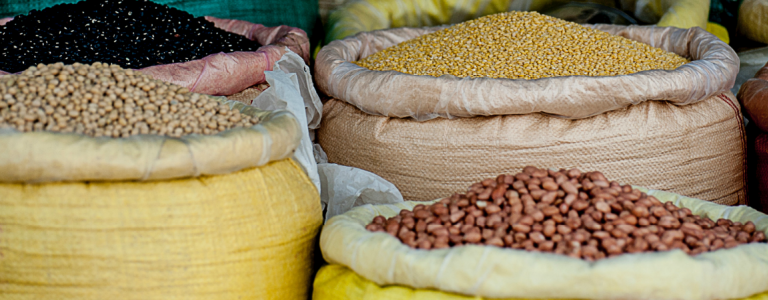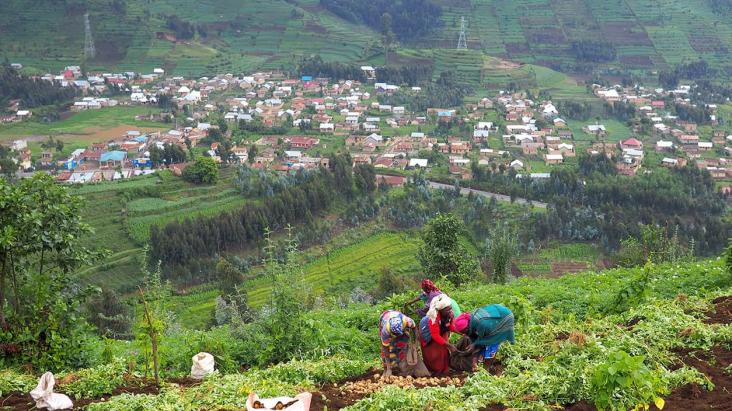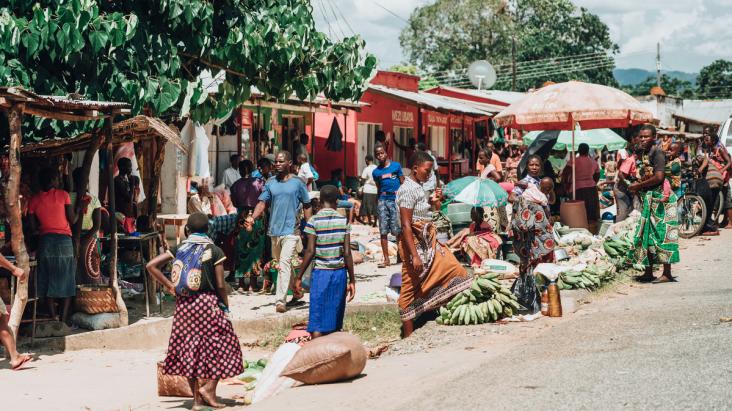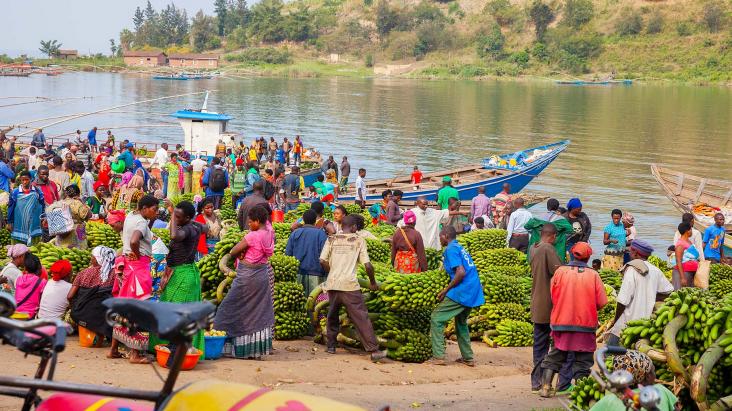State of Sustainability Initiatives
Working toward more transparent and sustainable forms of production, consumption, and trade.
IISD’s State of Sustainability Initiatives (SSI) has been working to advance sustainable and inclusive value chains since 2008. We provide credible and solution-oriented research, dialogue, and strategic advice for decision-makers about voluntary sustainability standards (VSSs) and other supportive initiatives.
Our goal is to help decision-makers use VSSs as needed to support more sustainable production, consumption, and trade. This work includes helping small-scale producers and micro, small, and medium-sized enterprises in developing countries to access markets and receive fair remuneration. Our strategy to achieve this goal has three components:
- Improving the design and practices of VSSs.
- Increasing synergies between VSSs and policy action at the national, regional, and multilateral levels.
- Enhancing the transparency and accountability of value chain actors’ sourcing practices and the terms and conditions they establish with producers.
What are VSSs?
The United Nations Forum on Sustainability Standards defines VSSs as “standards specifying requirements that producers, traders, manufacturers, retailers or service providers may be asked to meet, relating to a wide range of sustainability metrics, including respect for basic human rights, worker health and safety, the environmental impacts of production, community relations, land use planning and others.”
Some VSSs are international in their scope, such as Fairtrade International, GlobalG.A.P., and Rainforest Alliance. Others have a local or regional focus, such as the Indian-based Trustea, Madagascar Organic, or the African Organisation for Standardisation.
Over the last 3 decades, there has been exponential growth in the demand and supply of standard-compliant products, which has led to the proliferation of VSSs. The diversity of these initiatives makes it increasingly challenging for stakeholders to stay informed on their utility, performance, and best practices.
Our work
We work with VSSs and value chain actors, producer and consumer groups, policy officials from governments in producing and consuming countries, regional blocs, intergovernmental organizations, and multilateral entities.
We conduct research, provide tailored services such as capacity building and technical assistance, and convene and facilitate dialogues.
Through our work, we strive to improve the effectiveness of VSSs and raise awareness about their potential to foster sustainable production, consumption, and trade among all stakeholders—from smallholder farmers, end consumers, and large manufacturers to government officials and financial services providers.
Our history
The SSI project is the result of several multistakeholder meetings (2003–2006) on sustainable commodities production and trade, facilitated by the United Nations Conference on Trade and Development and IISD, under the auspices of the Sustainable Commodity Initiative (SCI).
Building on requests for improved information on the performance and market opportunities associated with voluntary sustainability initiatives, the SCI, through a special partnership with the International Institute for Environment and Development (IIED) and AidEnvironment, launched the SSI project in 2008. IISD leads and manages the SSI.
Publications
Addressing Soil Acidity and Enhancing Soil Health
This policy report addresses the critical issue of soil acidity in the East African Community (EAC) and provides actionable recommendations for EAC partner states, the EAC Secretariat, and other relevant stakeholders.
Promoting the Development of Agricultural Cooperatives
Governments in the Global South should promote agricultural cooperatives to boost smallholder access to fair markets, finance, and climate resilience.
Fitting the Pieces of the Puzzle
Governments are adopting sustainability standards for global value chains (GVCs), but businesses in the Global South face challenges in meeting these evolving regulations.
Will the Inclusion of Voluntary Standards in Trade Agreements Lead to More Sustainable Trade?
The use of voluntary sustainability standards (VSSs) and similar systems in free trade agreements (FTAs) is gaining traction. Will it lead to more sustainable production and consumption globally?
Webinars
Implementing the European Union Deforestation Regulation: Perspectives from Southeast Asia
Webinar will bring together different perspectives to discuss the practical feasibility of EUDR implementation and explore alternative and complementary approaches to address deforestation.
Through Her Lens: Women leading change in sustainable agriculture and market inclusion
Despite the critical role that women play in agricultural production, they still do not have equal access to global agricultural supply chains on terms that benefit them.
Stakeholder Consultation of the East African Organic Products Standard
This online event will bring together key stakeholders to review new standards, discuss regulatory requirements, and identify updates for relevant policies.
Strengthening the Role of Voluntary Sustainability Standards in Trade Policy
An interactive seminar during the World Trade Organization’s Trade and Environment Week on how to identify credible VSSs to integrate in trade policy and what role the WTO can play.
Project team
Latest
You might also be interested in
Trade and Climate Change
IISD project on trade and climate change
Climate Change, the Natural Environment, and the Green Transition
IISD is driving policy change at the intersection of trade, climate change, and the natural environment.
Normalizing No New Fossil Fuels
There is no room for new fossil fuel projects under a 1.5°C global warming limit. New research explores how countries and the public can establish “no new fossil fuels” as a benchmark for climate leadership.
AQUA-Pearl
A new project will help communities in Fiji build their resilience to climate change through nature-based approaches to oyster aquaculture.












